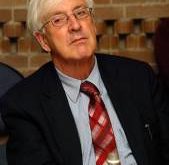My latest piece in The Conversation, looking at Australia’s belated move to adopt fuel efficiency standards for light vehicles Australia looks set to adopt fuel-efficiency standards after the Albanese government on Sunday revealed options for the long-awaited policy. The government says the reform would lead to more cars that are cheaper to run, eventually saving Australians about A$1,000 per vehicle each year. The announcement comes a decade after the Climate Change Authority...
Read More »Do you want to subsidize rich people’s political contributions?
from Dean Baker In prior decades we in the US used to try to restrict the ability of the rich and very rich to buy elections. We have limits on campaign contributions to candidates and political parties. Until the Supreme Court’s 2009 decision in Citizens United case, corporations were prohibited altogether from contributing to politicians and political campaigns. This is no longer the case. The rich have found ways to largely circumvent campaign funding restrictions with independent...
Read More »Why does the GOP hate capitalism?
From a comment thread over at jabberwocking.com:“The walls are more a sign of desperation than power. A better way is to fix Central America so there is a larger buffer between the US and the problems in South America. Fixing includes making conditions in the continent prosperous enough for all that we don’t have hordes desperately attempting dangerous journeys.”Exactly. Walls don’t work. But the GOP would rather spend billions on futility than spend...
Read More »Lessons from monetary history: The quality-quantity pendulum
from Asad Zaman and WEA Pedological Blog In the previous section, we saw how economic theories changed from classical to Keynesian to Monetarist over the course of the 20th century. These changes were driven by historical events. Taking this historical context into account deepens our understanding of economic theories. This contrasts with conventional methodology of economic textbooks, which treats economic theories as scientific laws, which are universally applicable to all societies....
Read More »“Complexity” in economics
from Maria Alejandra Madi and RWER issue 106 Anthropogenic climate change and ecological breakdown are now major threats to human life and other species. It is widely acknowledged that mainstream economic theory and especially neoclassical theory lack adequate concepts to address these problems and arguably have contributed to them through misdirection and delay. “Complexity” sciences, however, are now widely adopted but have as yet made little impact on economics. In this short article I...
Read More »Irresistible Force meets Immovable Object
I’ll be presenting a talk at the Australasian Agricultural and Resource Economics Society conference. Title Irresistible Force* meets Immovable Object** * Massive expansion in production of low-cost solar PV ** Entrenched resistance to deployment. Shorter JQ: Irresistible force will win in the end Presentation is here Share this:Like Loading...
Read More »Mainstream economics — an explanatory disaster
from Lars Syll To achieve explanatory success, a theory should, minimally, satisfy two criteria: it should have determinate implications for behavior, and the implied behavior should be what we actually observe. These are necessary conditions, not sufficient ones. Rational-choice theory often fails on both counts. The theory may be indeterminate, and people may be irrational. In what was perhaps the first sustained criticism of the theory, Keynes emphasized indeterminacy, notably because...
Read More »Weekend read – Neoliberal angst?
from Peter Radford I wonder why it is that neoliberals so reject the label we have given them. Is it because they’e embarrassed? I don’t think so. They all seem very proud of their attachment to the old order. Every so often one of them will surface and proclaim bitterly that they are misunderstood and they they don’t deserve the opprobrium piled on them by those nasty “leftists” who want to sully the pristine reputations of people like Mises and Hayek. Poor dears. Are we to feel...
Read More »The end of maritime power
Noah Smith has posted an interesting interview with Sarah Paine who looks at the distinction between maritime powers (in modern history, Britain and the US) and continental powers (everyone else). Paine sees maritime powers as beneficent creators and upholders of a peaceful and rules-based international order It’s a distinction I’ve discussed in the past, but with very different views. Here’s a full-length response The maritime/continental distinction is crucial, but not in the...
Read More »Basics of Monetary Economies
from Asad Zaman and WEA Pedological Blog . . . conventional modern textbooks of economics do not correctly describe monetary economies.. . . For instance, a popular textbook by Mankiw states that: . . . I am planning to write a textbook on monetary economies. I will draft it section by section and chapter by chapter, and put down the drafts here for feedback and comments. The first section is given below – it is an introduction to the topic, and provides some motivation for the study,...
Read More » Heterodox
Heterodox



